
Cleaner Cooking
Technology and
Impact
Why Cleaner Cooking?
Nearly one third of the global population relies on hazardous rudimentary cooking methods (burning coal, firewood, and animal dung), leading to millions of premature deaths each year.
Women suffer the most due to limited access to clean cooking solutions, spending an average of five hours daily collecting fuel and cooking.
This deprives them of opportunities for education, employment, or financial independence.
Access to modern cooking appliances and reliable energy is often unaffordable or unattainable in developing economies.
Clean cooking solutions can profoundly transform the lives of the 2.3 billion people who lack access, providing safer and efficient alternatives.
Household Cleaner Cookstoves
Up to 55%
fuel savings due to
thermal efficiency.
100%
locally made.
5 Year
Life span.
Save families
$150 - $200
in annual charcoal
expenditure.
Transforming Lives: Cleaner Cooking for All
One fuel efficient cookstove will reduce daily household charcoal consumption by 45% - 55% thanks to improved thermal efficiency.
This saves households annual fuel expenditures that can then be repurposed for other priorities such as education and health.
Cookstoves are 100% locally manufactured creating employment and stimulating the local economy throughout the supply chain
Cuts cooking time; reduces trips to fetch cooking fuel and time saved can be used for productive activities e.g. education and income generation.
“It’s a good stove. Very economical, the food cooks well and is practical as they make little smoke. I now use less coal than I used before”
Miseria, Community Cookstove Customer, Mozambique
Cleaner Cooking: Reported Sustainable Development Goals
SDG 1: No Poverty
Saves families $150-$200 in annual charcoal expenditure
SDG 5: Gender Equality
Disproportionate benefits to women and girls providing them with time and money freedom.
SDG 7: Clean Energy
Delivery of cleaner, fuel-saving cookstoves to 3.1M households for the next 15 years.
SDG 8: Decent Work
Partnership with local manufacturers, distribution networks, and employment of 500-550 individuals.
SDG 12: Responsible Consumption
Up to 55% reduction in the use of non-renewable biomass per household.
SDG 13: Climate Action
Estimated annual average emission reduction of up to 45 million tCO2e across Community Carbon projects, over the next 15 years.
SDG 15: Life on Land
Estimated annual average emission reduction of up to 45 million tCO2e across Community Carbon projects, over the next 15 years.
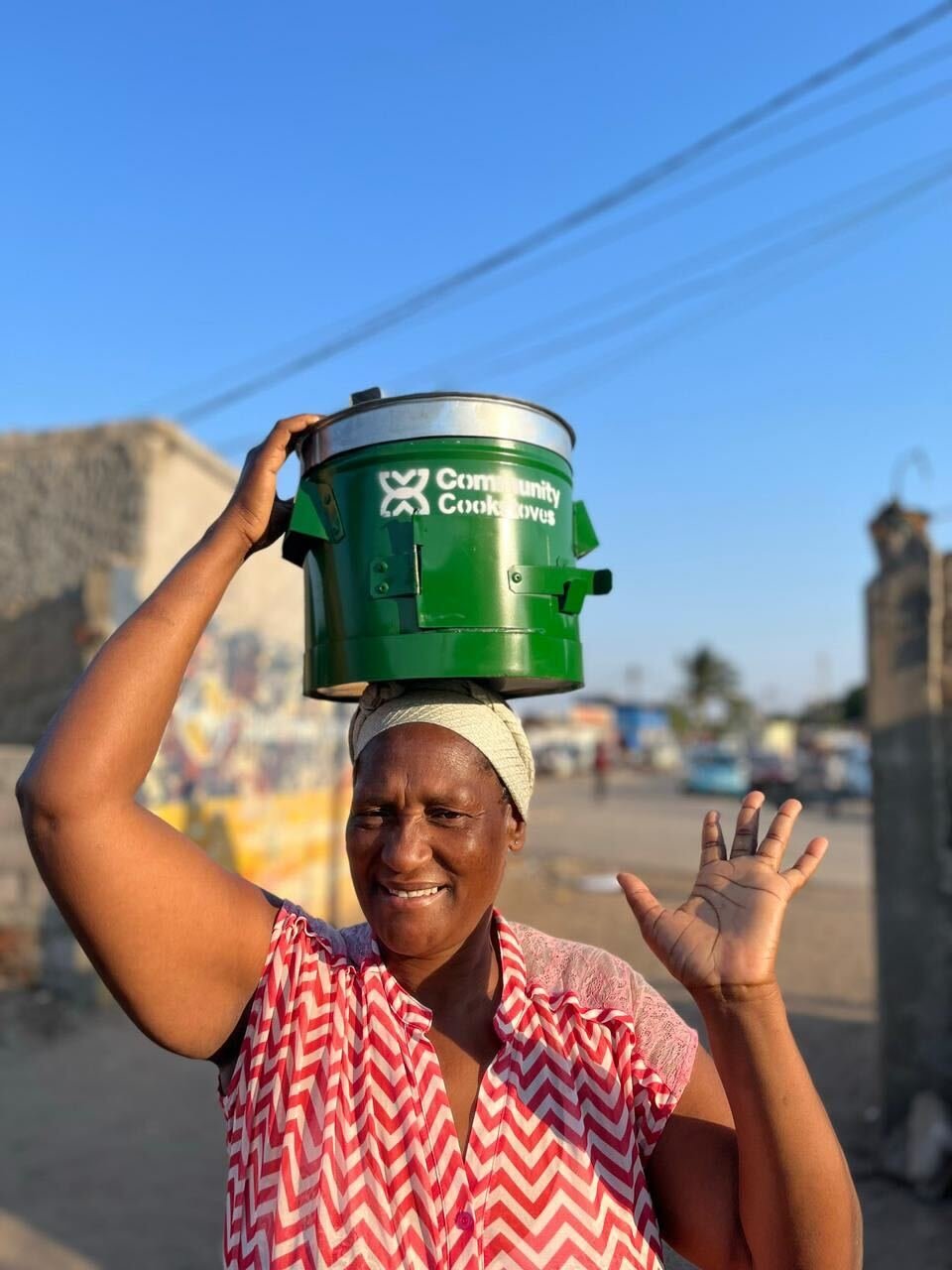
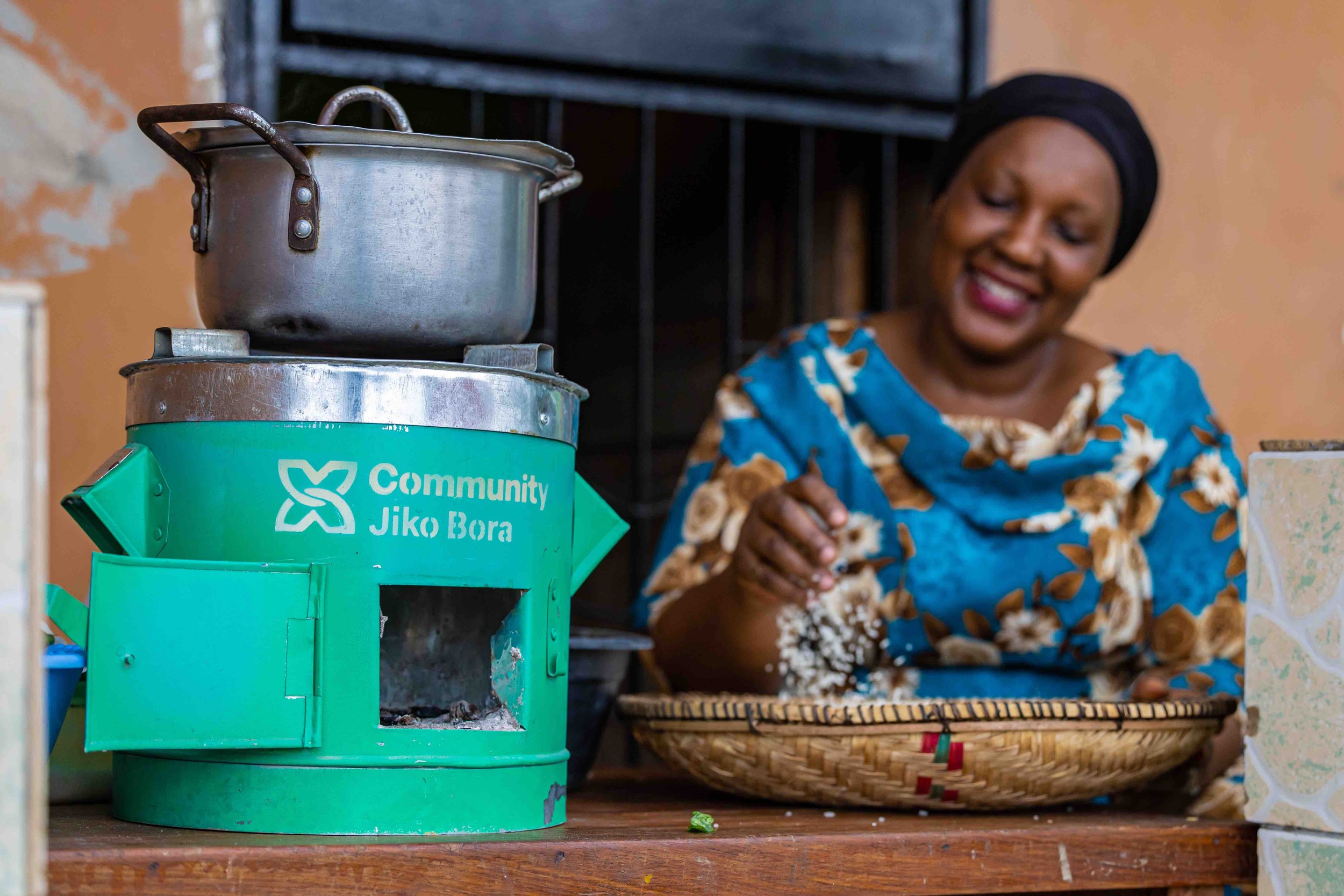

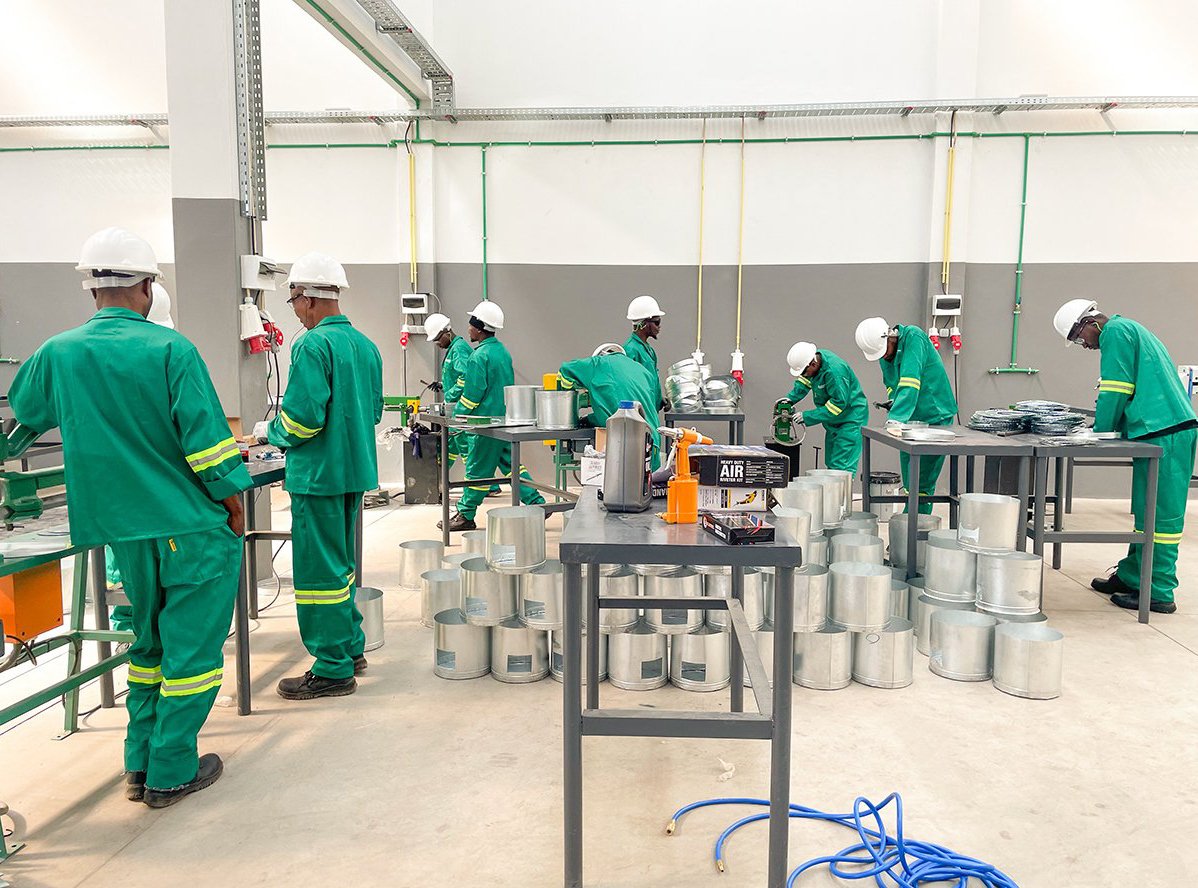
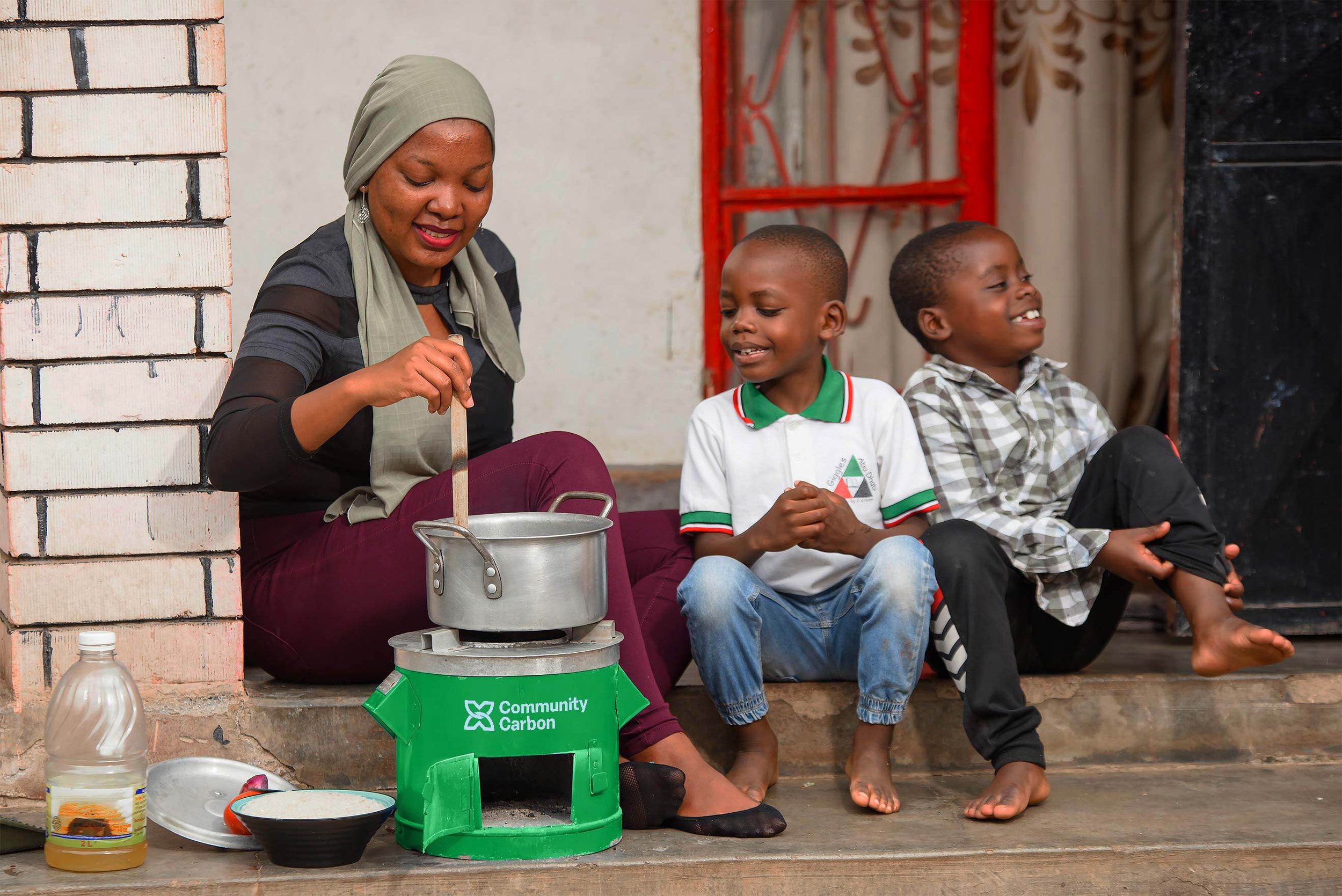
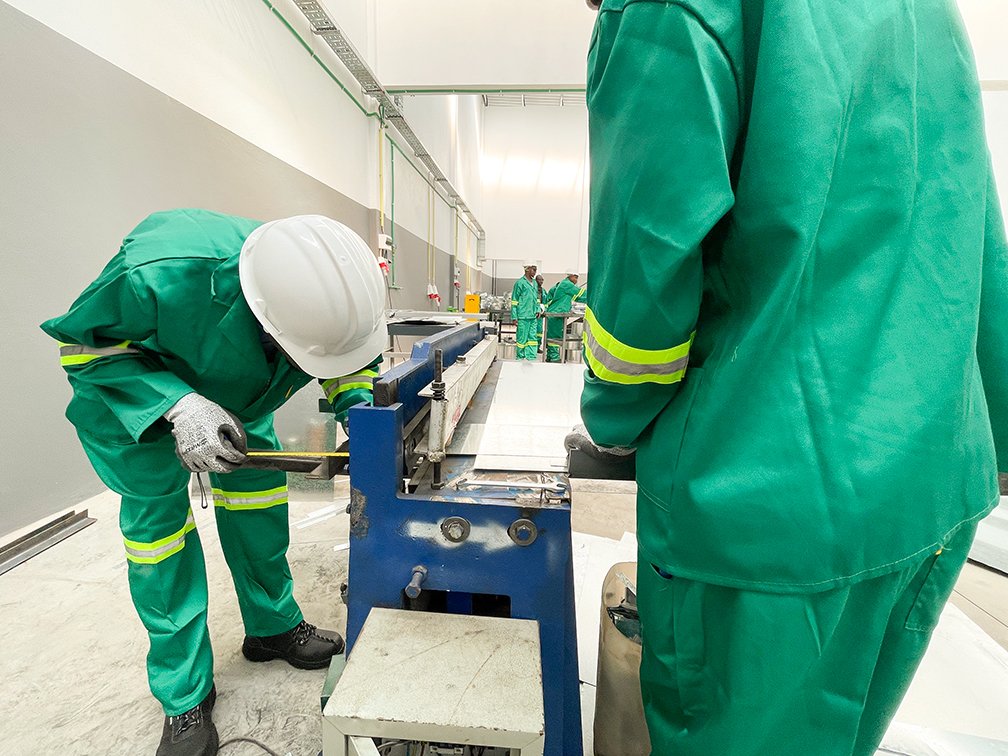
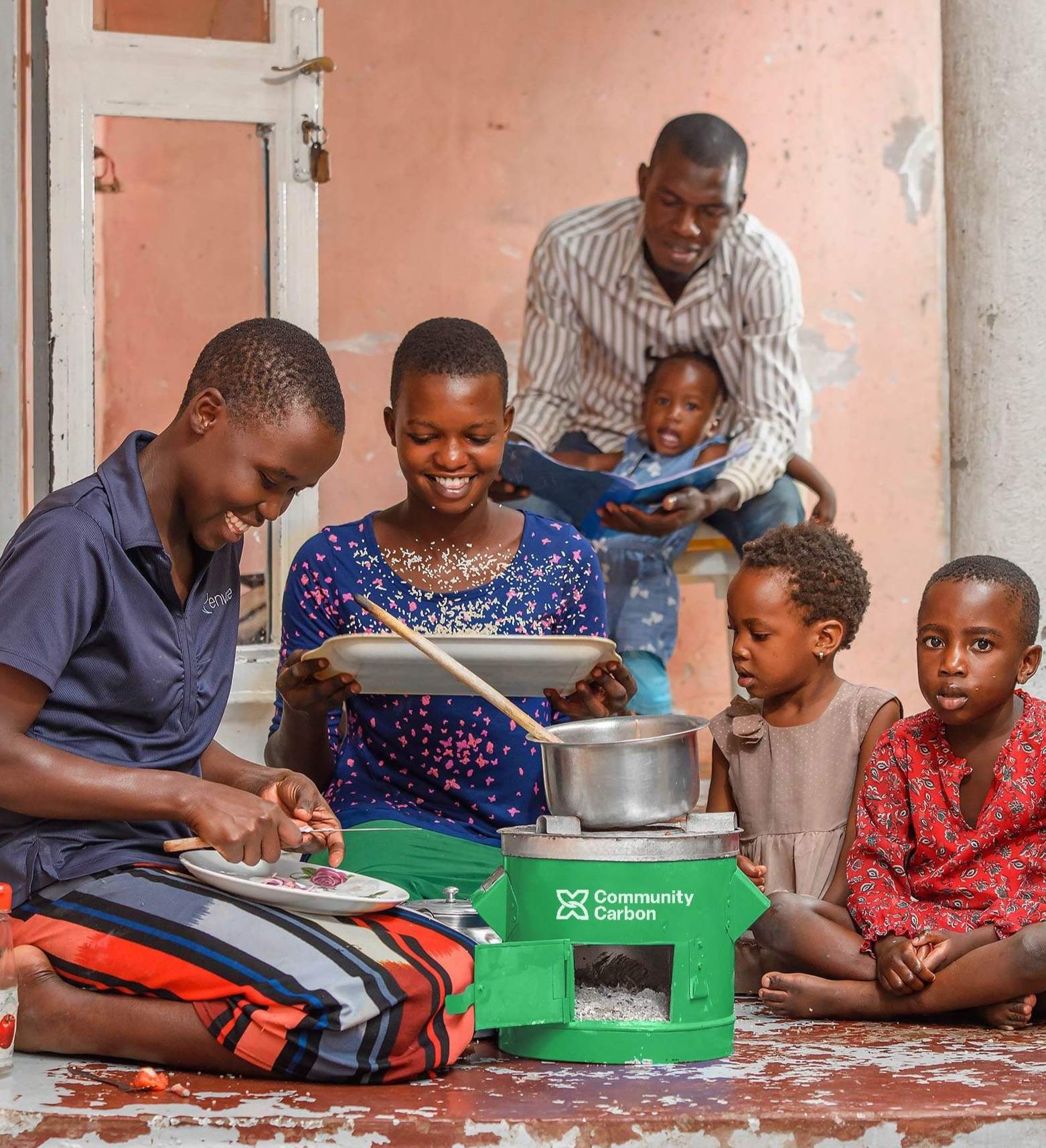

CONTACT US

















